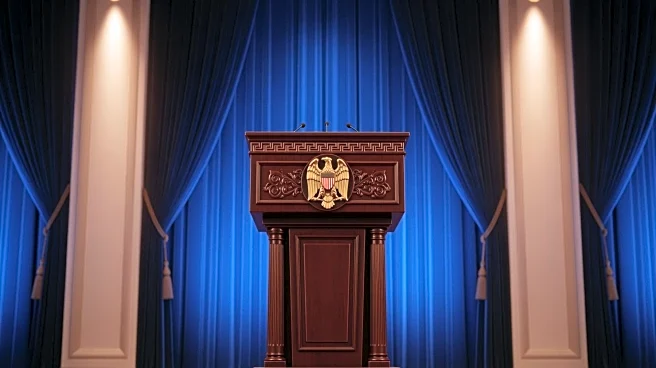What's Happening?
President Donald Trump has ruled out the possibility of running for vice president in the 2028 election, a strategy some supporters suggested to bypass the constitutional two-term limit for presidents.
Speaking aboard Air Force One, Trump described the idea as 'too cute' and not well-received by the public. The 22nd Amendment restricts presidents to two terms, and the 12th Amendment prevents anyone ineligible for the presidency from serving as vice president. Despite these limitations, former aide Steve Bannon has hinted at a plan to reinstall Trump in the White House, though specifics remain undisclosed.
Why It's Important?
Trump's decision not to pursue a vice presidential candidacy highlights the constitutional barriers to a third presidential term. The 22nd Amendment, enacted in 1951, was designed to prevent extended presidential tenures, reflecting a commitment to democratic principles and checks on executive power. Any attempt to alter this framework would require significant political maneuvering and consensus, posing a formidable challenge. Trump's continued influence within the Republican Party and his potential candidacy could shape the party's direction and the broader political discourse leading up to the 2028 election.
What's Next?
As discussions about Trump's political future continue, the Republican Party faces strategic decisions regarding its leadership and platform. The possibility of a third term for Trump, despite constitutional constraints, may prompt legal challenges and debates over the interpretation of presidential eligibility. The party must also consider the implications of Trump's age and health, as he would be the oldest president if elected for another term. These factors, along with potential Democratic contenders, will influence the political landscape and voter sentiment in the coming years.









